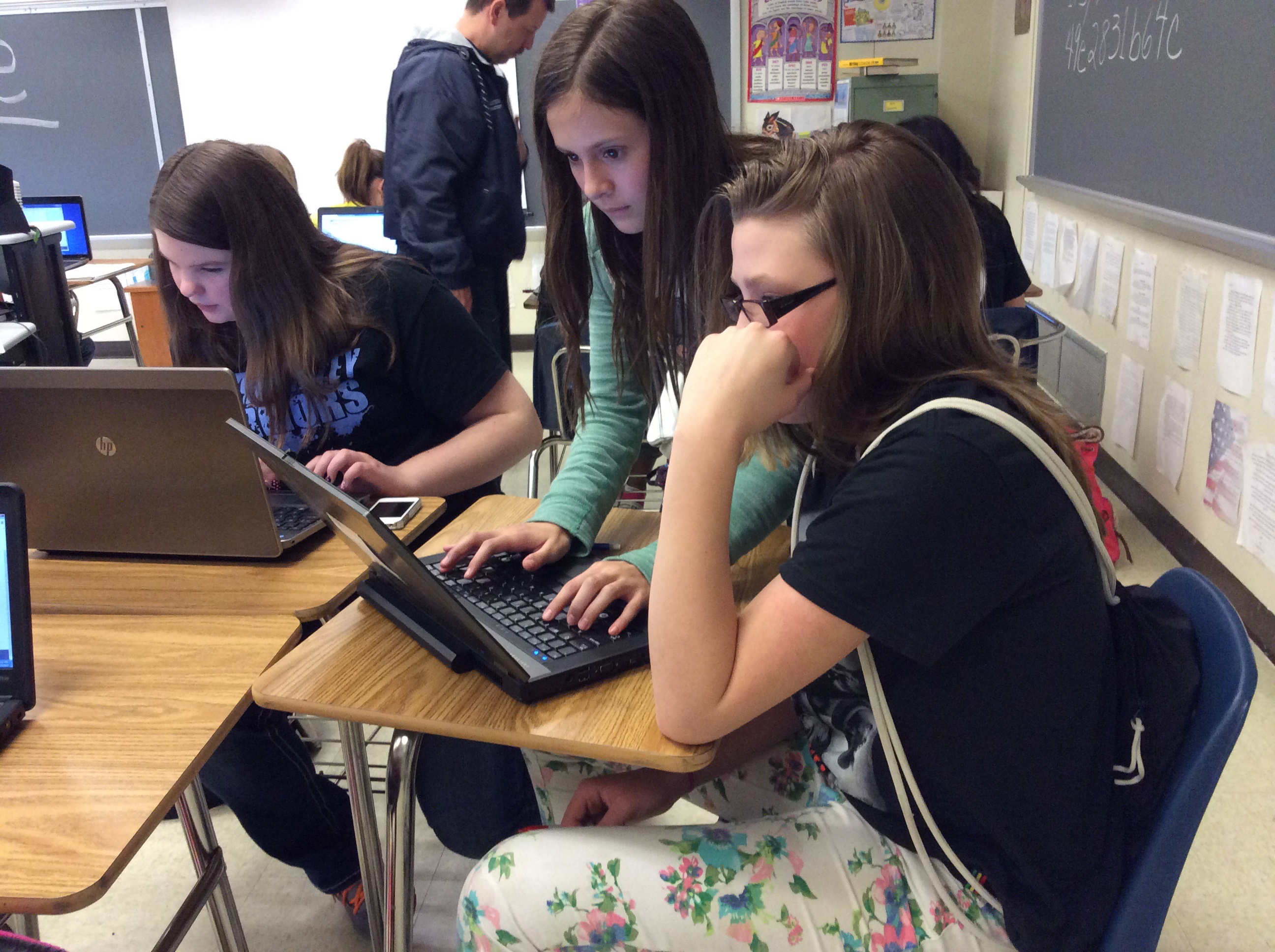Supporting the Struggling Writer

Caption: A Turnitin study reports that technology tools can overcome psychological barriers struggling students encounter in writing. Pre-writing and frequent, informal writing exercises often guided by technology tools, can help.
In a recent survey of students from middle school to graduate school by Turnitin, half of the 1,400 students who responded said they find it challenging just getting started with a writing project.
For teachers, this shouldn’t come as a surprise. There are always students in every class who, for one reason or another, find it daunting to begin filling a blank page or screen with words. And they aren’t necessarily the worst students in the class: They could be anyone, including the highest achievers.
In talking with several teachers, U.K. researcher Paul Gardner identified a number of possible reasons for this problem. For instance, students might be perfectionists, and their fear of “getting it wrong” prevents them from starting to write. They might lack confidence in their ability, or they could be having trouble coming up with ideas—or maybe they’re just reluctant to take risks.
Often, the barriers to writing are deeply psychological in nature. In his paper, Gardner describes how one professional writer can only write on lined A4 paper with four holes punched in the margin. “On an occasion when he mistakenly bought paper with only two holes, he found he was unable to write until he had the correct paper,” Gardner noted.
Students who struggle with their writing need help overcoming these barriers, so they no longer think of writing as a difficult process. This is critical for so many reasons. The ability to write well is essential for academic success—and in today’s Information Age economy, it has become increasingly important for professional success as well.
New state standards place more emphasis on writing skills, and though the SAT has made its essay portion optional as of spring 2016, many colleges prefer or even require applicants to take it. What’s more, writing is the third most highly coveted skill among today’s employers, an analysis by Burning Glass Technologies found.
Fortunately, there are a number of strategies and technology tools that can support struggling writers. Here are four key ideas to start with.
- Pay attention to the prewriting process.
Prewriting can help students ease into their writing with a clear plan, which makes the actual writing process simpler. During prewriting, students focus on choosing a topic, developing a purpose, identifying an audience, and collecting and organizing ideas. If students spend quality time prewriting, they won’t be as overwhelmed when it’s time to begin writing, making the process less stressful.
Use mind mapping software and brainstorming strategies to help students generate ideas. Encourage outlining and storyboarding to help them visualize and organize their project. Provide prompts and templates to help them get started.
- Provide a safe, supportive environment that removes the sense of risk.
Writing is a more intensely personal activity than, say, solving an algebra problem or balancing a chemistry equation—and so students are likely to be more sensitive to critiques of their work. Therefore, it’s critical to put students at ease by establishing a safe, supportive environment where they feel comfortable sharing their ideas and getting feedback.
Establish a classroom culture in which everyone feels supported and valued. Help students understand that all feedback is designed to make them better writers, and provide plenty of encouragement and support.
Also, consider using a software-based formative writing tool, such as Turnitin’s Revision Assistant, to help students receive timely and actionable feedback on their writing. Technology can provide a safe, non-threatening environment for students, because they might be less inclined to feel as if their work is being judged by someone whose approval they desire, such as a teacher or fellow student.
- Mix in opportunities for frequent, informal writing.
Not every writing assignment has to be a formal paper with a prewriting process, multiple drafts and revisions, and a final product. Giving students frequent, low-stakes opportunities to write helps them grow as writers, just like exercising every day helps develop one’s muscles.
If you get students writing more frequently—even with short, informal assignments, such as daily journal entries—then writing will become more natural to students, and they won’t be as intimidated when they have to write a formal paper.
- Inspire students’ creativity.
There is plenty of research suggesting how the design of a learning space affects student creativity and achievement. You can inspire students’ creativity by making learning spaces more inviting and giving students multiple seating options, such as comfy chairs with various textures and colors rather than traditional desks arranged in formal rows.
By giving students a choice in where to sit and work comfortably, you are giving them a sense of ownership over their learning space—which can help them to relax and do their best work.






